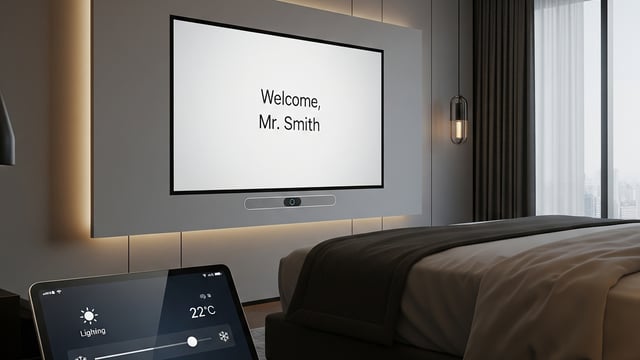
Training in hospitality has never been only about tasks. It is about shaping culture, building belonging, and creating pride. In many hotels, however, the process still feels like a box-ticking exercise. New hires memorize scripts, click through online modules, and sign off on checklists. The process ends, but the learning and the loyalty never truly begin.
Compliance may satisfy requirements, but it does not build commitment or culture. With Gen Z now the backbone of hotel teams, expectations are sharper. They look for purpose, fairness, and recognition, not just technical skills. In a sector where turnover erodes quality and profit, training must be reimagined as a living relationship that tells employees: you belong here, you are trusted, and your growth matters.
Training as Culture, Not Compliance
Amy, a front office associate at a small independent hotel, remembers the moment her orientation shifted. Instead of being asked to memorize standard operating procedures, her manager simply asked, What are you curious about here?
That question changed everything. Training became less about instruction and more about shared growth. Guest reviews mentioning staff were pinned on a bulletin board, making employees feel visible and valued. It’s not about the reward
, Amy said. It’s knowing someone noticed.
For Gen Z, who judge workplaces by how seen and supported they feel, these moments are decisive. What feels intimate in a small team can fade as a hotel grows. That is why recognition systems must scale along with headcount and complexity. Pre-shift shout-outs, simple digital dashboards that surface guest compliments, and structured peer-to-peer acknowledgments keep recognition consistent while preserving authenticity.
Rituals and Symbols That Stick
At a branded property, John experienced a different approach. Training came with clear career tracks that showed where he could grow. The moment that stayed with him was the graduation. A certificate, applause from colleagues, and a few words from his supervisor turned a routine milestone into pride. No one had ever clapped for me finishing training before
, he said.
Rituals matter. They elevate routine development into cultural moments that inspire loyalty and pride.
Rituals speak strongly to Gen Z, a generation raised on visible milestones and shared celebrations. Certificates, pins, or a quick team photo can turn learning into belonging. But rituals without flexibility have limits. John’s first real service crisis showed that procedures alone did not prepare him for the floor.
Pair structured pathways with adaptability. Short stress simulations, cross-department rotations, and team problem-solving huddles help staff practice recovery and build confidence when the unexpected happens.
Scale Needs a Human Voice
Chris joined a global chain after nearly forty hours of e-learning. He passed every quiz. On paper, he was ready. On his first shift he missed a wake-up call and froze. The system told me what the brand stands for
, he said. But no one asked what I stand for.
A mentor later walked the floors with him, turning mistakes into lessons. That is when real learning began. Trainers under pressure often compress onboarding into rushed checklists, which leaves people feeling processed rather than developed.
Digital platforms ensure consistency at scale. Technology delivers information, not connection. For Gen Z, this gap is obvious. They want clear feedback, frequent coaching, and proof that performance is noticed. Reinforce modules with short, frequent coaching conversations and quick reflective debriefs that help employees feel supported as individuals.
Training for Gen Z: A Quick Playbook
Design for meaning, mastery, and equity. Keep it simple, repeatable, and visible.
1. Start with purpose, then show the path.
Open with why the role matters to guests and the team, then map skills to visible milestones. Celebrate the first meaningful win, the first named five-star review.
2. Frame tasks through the guest’s eyes.
Connect actions directly to guest care as well as results. Guiding a guest to a better option should enhance their experience while also supporting the hotel’s success.
3. Coach in short, frequent cycles.
Replace one long evaluation with weekly ten-minute micro-coaching. One strength, one focus, one next step.
4. Make recognition fair and transparent.
Publish simple criteria for praise. Rotate who presents shout-outs. Track recognition patterns so it stays equitable. Fairness builds trust.
5. Practice resilience.
Run brief scenarios with pressure and ethical choices, not just scripts. Debrief on what went right, what can improve, and how to recover with care.
6. Co-create improvements.
Invite each new hire to fix one small pain point in the first month. Small wins build ownership. Ownership builds commitment.
The Balancing Act
The experiences of Amy, John, and Chris show what leaders must balance:
- Intimacy without systems is fragile, recognition fades as hotels grow.
- Structure without adaptability is rigid, employees freeze under pressure.
- Scale without human touch is impersonal, staff complete modules but feel invisible.
When one element dominates, training fails. When empathy, structure, and scale work together, training becomes more than a task. It becomes culture in action.
Training as Cultural Architecture
Hospitality runs on people who bring energy and care, every shift. Employees rarely remember the number of training hours they completed. They remember the moments when they felt seen.
Amy remembers being asked what she was curious about. John remembers applause from his peers. Chris remembers a mentor who turned mistakes into growth. These moments, not checklists, inspire loyalty.
A recent study found Gen Z describes hospitality in both relational and transactional terms: women emphasize care and empathy, men focus on money and food. Training that reflects both views, showing how care drives service and revenue, resonates strongly.
A Call to Action
If guest experience depends on employee experience, then training is one of the clearest expressions of culture. Do not choose intimacy, structure, or scale in isolation. Weave them into a system that is consistent and human.
Do three things in the next thirty days:
- Embed daily recognition. Open each shift with one specific shout-out.
- Pair digital modules with micro-coaching. Ten minutes each week, every week.
- Mark milestones as rituals. A quick certificate, a team photo, a note from the GM.
Align these habits with what Gen Z expects from work. Purpose, fairness, and recognition turn training into a source of pride rather than paperwork. When staff believe that they matter, they do not just stay, they thrive. Guests feel it, teams feel it, and the business benefits.






